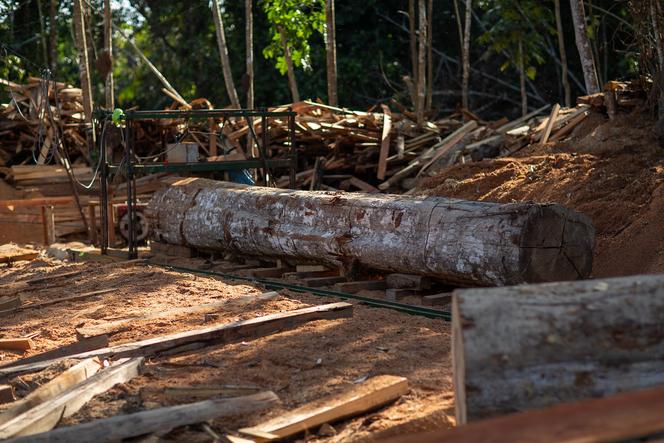

LETTER FROM CUZCO

This is the most emblematic case of mafia violence against environmentalists: the retrial of the alleged killers of the "Saweto Four," the latest episode in a 10-year legal battle, is currently taking place in the Amazonian region of Ucayali, in central-eastern Peru.
It symbolizes the inaction of the State and the lack of protection afforded to indigenous populations. For many years, victims had unsuccessfully sought help from the authorities in the face of constant death threats.
The events date back to 2010. Edwin Chota, head of the Ashéninka community (one of Peru's 51 Amazonian ethnic groups) in Alto Tamaya-Saweto, Ucayali, and three other leaders were vehemently denouncing the timber mafias that had been operating with impunity in their territory since the mid-2000s.
This region of Peru, bordering Brazil, is known as one of the epicenters of tropical timber trafficking. Since the turn of the century, Amazonian territories in general have been the prey of exponential growth in criminal economies: drug trafficking, land usurpation, timber trafficking, illegal gold mining, etc.
Chota had lodged various complaints about "illegal logging" and "forest depredation" within the communal territory. They were all to no avail. On September 1, 2014, he and three other Ashéninka leaders were cruelly murdered. The boats on which they were traveling were ambushed. They were shot several times and their remains were thrown to the fish. They left behind four widows and 11 orphans.
The alleged killers were hired as hitmen by timber mafias and paid between 10,000 and 25,000 soles (€2,400 to €6,000). The masterminds are believed to belong to the Comando Vermelho, one of Brazil's largest criminal organizations.
An initial trial in 2022 resulted in the sentencing of the five alleged perpetrators to 28 years in prison. But the sentence was overturned in August 2023. The Ucayali Criminal Court of Appeal pointed to a procedural flaw, casting doubt on the independence of the magistrates. "Those responsible are still at large. One fled and will be tried in absentia. Meanwhile, the widows are constantly receiving threats, and the community has to cohabit with its enemies [the timber traffickers], who are at the village gates," said Rocio Trujillo, one of the families' lawyers.
Convictions for crimes against indigenous environmentalists are rare. Recently, the man responsible for the death of Arbildo Melendez, a leader of the Kakataibo ethnic group – who had fought against land invasions in the Huanuco region's territory, gangrened by drug trafficking – received a lenient sentence of four years and seven months in prison in 2022. The hypothesis of an accident was retained.
You have 50% of this article left to read. The rest is for subscribers only.
